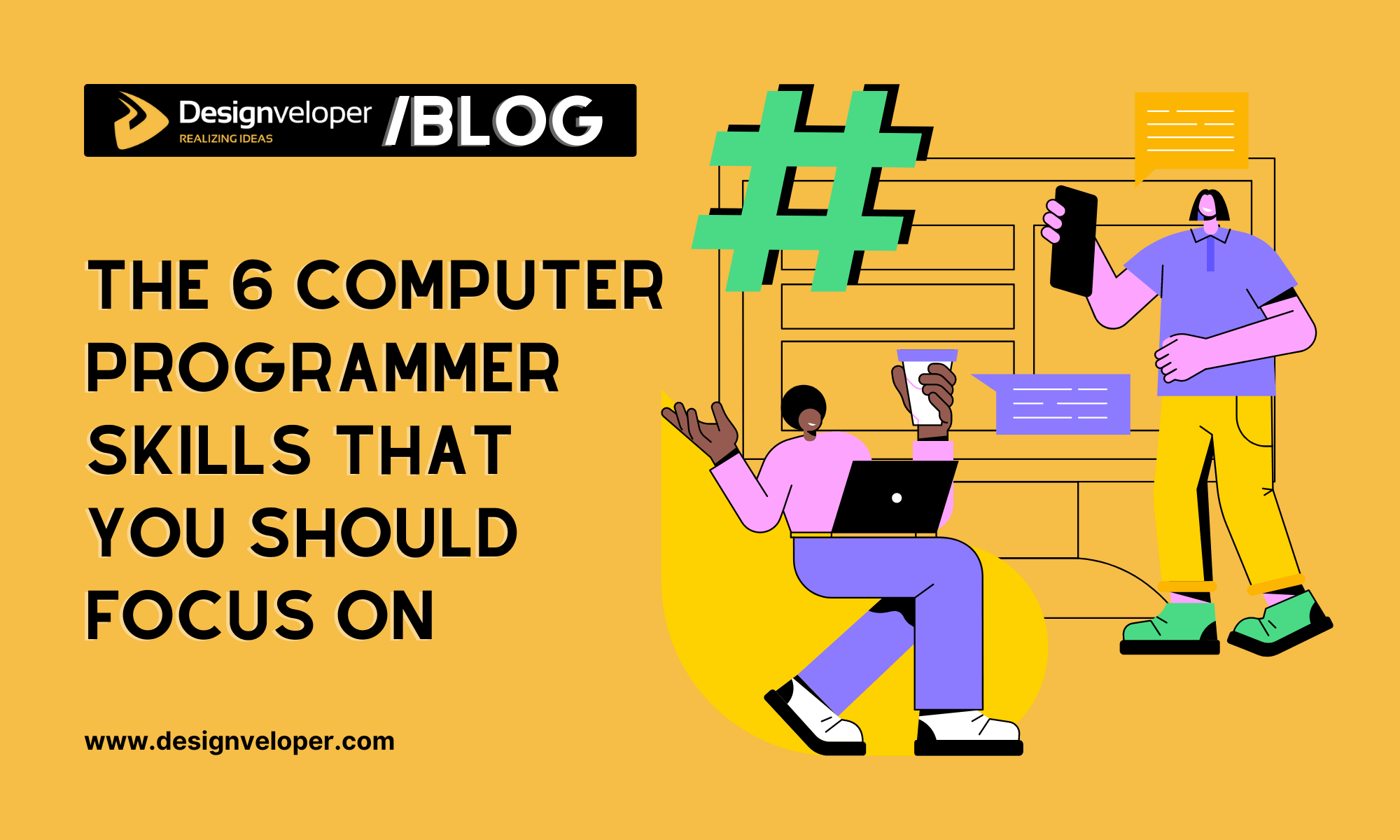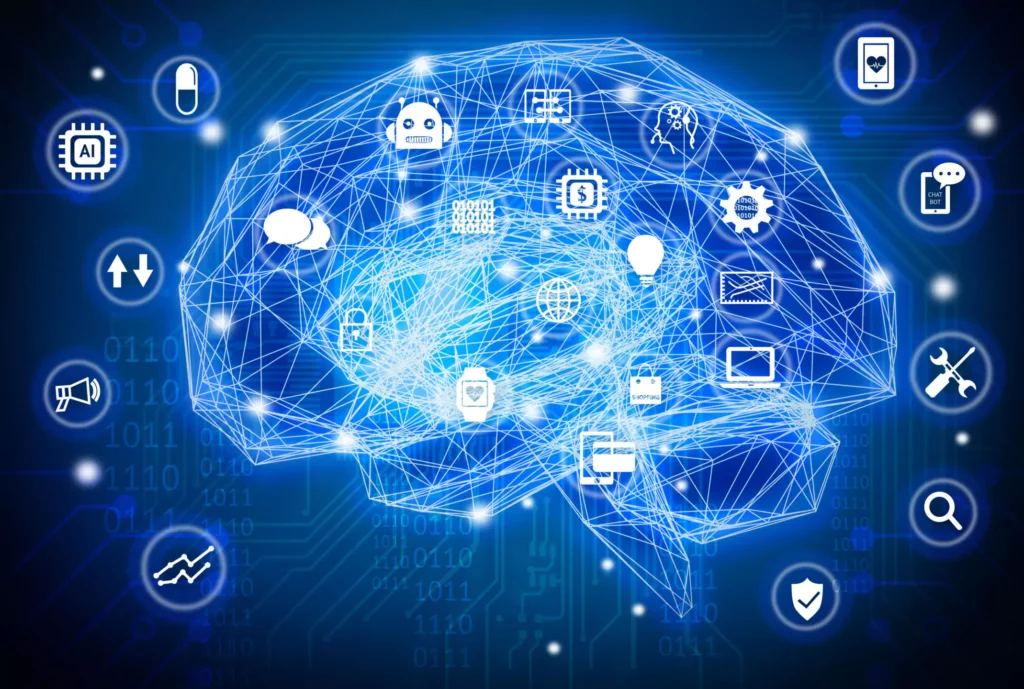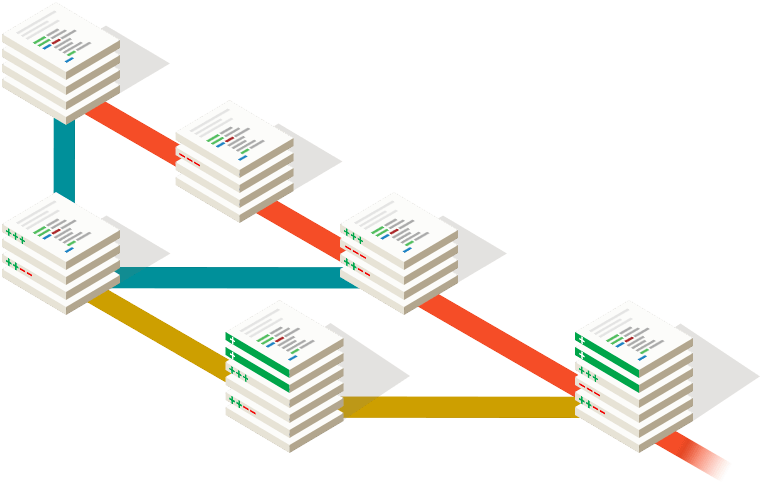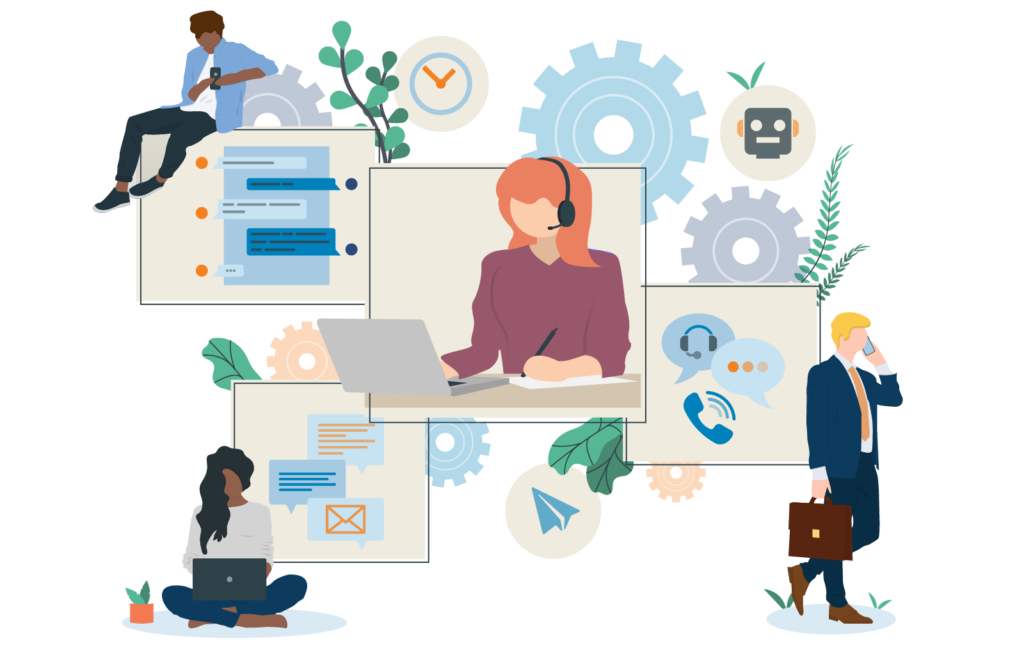10 Best Computer Programmer Skills That You Should Focus On
January 29, 2024


According to Salary.com, a computer programmer in the United States can earn about $56,486 to $73,819 on average each year. This salary range can be determined by many factors such as education, certification, experience, and essential skills. In order to succeed in the dynamic IT industry, it is recommended to invest in the right corporate software development training, read relevant literature, and participate in expert webinars. These initiatives collectively contribute to improving your computer programming skills, positioning you for career success.
What Are Computer Programmer Skills?
Computer programmer skills have a lot to do with coding, which is the process of writing instructions for computers’ operation. It generally requires you to be mindful of specific sets of actions to create a tangible result. The products you are expected to develop can be a mobile app, a web page, and so on. A computer programmer’s skill set often includes creative, technical, and analytical abilities.

The 10 Essential Computer Programmer Skills
1. The Mastery of Programming Languages
Undoubtedly, you need to be proficient in scripting or programming languages to write code. CodeAcademy, edX, Github, and other online courses and platforms can provide you with programming and coding experience in several languages.
Recommended reading: The 8 Best Full Stack Developer Courses With Certificates
According to experts, computer programmers and IT engineers should learn at least one programming language thoroughly. Python, JavaScrip, and Ruby are the three major languages thanks to their multifaceted applications and versatile utility.
Python, developed in the 1980s by Guido van Rossum, is regarded as one of the easiest programming languages to learn. It’s compiled to bytecode as a scripting language that is immediately executed with no explicit compile step. Python is free and open-source, so it’s quite popular these days and used by NASA, Google, and Yahoo!
As a client-side scripting language, JavaScript is universally exploited in front-end development. Much of JavaScript syntax comes from the programming C Language, and it’s compatible with all platforms and browsers. To make websites, games, and similar products and services, computer programmers need a deep understanding of JavaScript.

Ruby is another universal scripting language that is dynamic and object-oriented. It’s the language designed by Yukihiro Matsumoto, and it’s often useful in the development of mobile apps and websites. For instance, it’s used to build the framework for Twitter, Groupon, and GitHub. Moreover, because this coding language doesn’t require you to have advanced knowledge of commands, it’s needed in backend and web development.
How DSV Build across Platform Apps by Mastering Programming Language
At Designveloper (DSV), we excel in leveraging computer programming skills to create cross-platform applications. In web development, we primarily employ React and NextJS, two JavaScript frameworks known for their efficiency and adaptability. This choice showcases our expertise in leveraging the right tools to create responsive and dynamic web applications, a crucial aspect of modern programming.
For mobile development, our team excels in using React Native and Flutter. These frameworks enable us to write a single codebase that works seamlessly across multiple mobile platforms. This approach not only saves time but also ensures consistency in performance and user experience, highlighting our proficiency in modern programming languages.
On the backend, we utilize NestJS, a progressive Node.js framework that supports our need for a robust and modular architecture. This choice reflects our deep understanding of backend development and our ability to implement scalable solutions effectively. In database management, our skills extend to MongoDB and PostgreSQL, demonstrating our versatility in handling different data management scenarios. Overall, our approach in using these specific programming languages and frameworks underscores our commitment to excellence and innovation in computer programming skills.
Recommended reading: 4 Programming Languages Used by Top Companies
2. Debugging & Problem-solving Skills
Debugging is one of the critical technical skills for programming. A computer programmer should know how to troubleshoot any defects or malfunctions. And he has to be qualified enough to do it by himself. It’s also necessary to be able to master debugging tools such as Arm DTT, LLDB, Microsoft Visual Studio Debugger, GDB – the GNU debugger, and so forth.
Recommended reading: Annoying Bugs Fixed Quickly to Enjoy Your Xmas Party!
Besides, a programmer should be ready to deal with problems using exceptional programming skills. There may be several problems with your projects. Thus, you ought to have these skills to handle challenging issues. The proof of your competence is in the programs you’ve developed.
3. Logical & Abstract Thinking
Were you a master of Geometry in upper secondary school? Do you enjoy assessing facts and evidence before devising solutions to problems? If so, you may already possess one of the essential computer programmer skills – logical thinking. In the realm of software development corporate training, honing this skill becomes even more crucial.
As a computer programmer, your ability to think logically is paramount, especially when it comes to detecting and troubleshooting mistakes or bugs that may be responsible for your programs’ failure. This logical mindset, coupled with ongoing software development corporate training, not only refines your problem-solving prowess but ensures you stay at the forefront of the dynamic and ever-evolving field of computer programming.

One method for your logic skill improvement is through conditional thinking, which means, if this, then that. In programming, this thinking style is useful in testing variables against values and implementing actions according to the required conditions. It can be interpreted like this:
if (a condition evaluates to True): then do these things only for ‘True’ else: do some other things only for ‘False’.
Besides logical thinking, abstract thinking is also an essential computer programmer skill. Because when you write programs, they are not always observed and measured physically. Thus, you should develop an ability to think abstractly from more comparative perspectives. In other words, to become a successful computer programmer, you must be willing to perceive things from different angles and come to analytical conclusions from what may seem straightforward.
Recommended reading: 10 Project Management Skills to Succeed at Work
4. Communication Skills
Many computer programmers often overlook communication skills as they think they mainly work with computers. However, bear in mind that apart from communicating with computer languages to bring out what you expect, you should possess good communication skills to get across your ideas and what you’re doing to your peer programmers or clients.

Let’s imagine that your customers don’t understand what you are trying to provide them. Then, instead of looking down on their lack of understanding, you ought to explain to them calmly. They will use your programs, so you have to let the users achieve a basic knowledge of technology and be able to navigate through those programs.
Recommended reading: What Does A Computer Programmer Do?
5. An Eye for Detail
“Details matter”
It’s what Steve Jobs said about the importance of our skill in inspecting details. When you’re coding or writing computer programs, you should attempt to think the way computers do. Then with your close attention to things, you can specify what you need, and reduce your risks of defects.
One way to improve this ability is that rather than hammering yourself by overlooking an important detail, you can build a game plan to assess, review, and promote your work. For example, you can take laps through the programs you’re working on, or promise to reread pertinent information at different times of the day. This can ensure you always pay close attention to stuff, even the smallest one.
Recommended reading: Fintech AI Risks: 8 AI Challenges Fintechs Still Struggle With
6. Good at Memorizing
As a matter of fact, computer programmers should be aware of various pieces of information at once and how they interact with each other. To do that, you need to have the excellent memorizing ability. It will help you visualize the design, data flow, algorithms, and data structures and understand how they interact. Hence, you can easily develop your programs or projects with greater ease.

Moreover, in many circumstances, you may find yourself utterly perplexed by a problem or situation you assume you have no idea about. Sometimes you are right. But if you think hard enough through your experiences, you may remember something helpful that you’ve already encountered. It can be your direct coding experience, or an abstract, irrelevant memory that appears to be pertinent, or just through your recalling of something helpful for the moment at hand.
7. Understanding of Machine Learning and Deep Learning
Understanding Machine Learning (ML) and Deep Learning (DL) is crucial for enhancing computer programming skills in today’s tech-driven landscape. Deep Learning, with its focus on iterative learning from vast data sets, equips machines to recognize patterns and adapt to changes. This adaptability is a testament to the dynamic nature of ML and DL, underlining their importance in developing future-proof computer programming skills.

The demand for these skills is skyrocketing, with a 2020 Deloitte survey revealing that 67% of companies are already using ML, and a staggering 97% plan to use it shortly. Not only that ML and DL are not just in high demand; they are incredibly versatile. These technologies apply to diverse tasks, ranging from language translation to autonomous vehicles and medical diagnosis. This edge is crucial in a field that’s constantly evolving and highly competitive. Furthermore, ML and DL are pivotal in data-driven decision-making. They enable programmers to make sense of large datasets, a critical ability in an era where data is king.
Understanding ML and DL offers a competitive edge and open up a wide range of career opportunities. As AI continues to advance, the importance of these skills will only increase for computer programmers.
8. Version Control Systems (VCS)
Version Control Systems (VCS) are a critical component of computer programming skills. They play a vital role in managing and protecting source code for software teams. By tracking all code modifications, VCS ensures a comprehensive history of changes. This tracking is essential for safeguarding the source code against unintended human errors. VCS places specific restrictions on who can commit changes to the main branch, ensuring code integrity.

Collaboration is a key aspect to any programming process and it is where VCS proves indispensable. It supports coordination and sharing among the software development team. VCS is particularly beneficial in distributed and asynchronous work environments. It helps manage code changes, versions, and merge conflicts effectively. This system enables teams to work more efficiently, resolving anomalies that might arise during development.
Productivity is significantly improved with the use of VCS. A study by JetBrains highlights how VCS can accelerate the speed and quality of software development. Teams utilizing VCS can deploy code changes faster and more reliably than those without it. This increase in productivity is a direct result of the organized and systematic approach VCS provides.
The demand for proficiency in VCS is growing, especially with the rise of distributed development teams and complex coding projects. Popular VCS tools like Git, SVN, and Mercurial are becoming increasingly essential in the programmer’s toolkit.
9. Knowledge of Databases
A data-centric view of the world is a crucial aspect for developers. This view differs significantly from the process-centric perspective. Understanding this viewpoint is key when designing databases that scale from a single application to an enterprise-wide, mission-critical role. It involves learning how databases are created and maintained.

There are several important database concepts that software engineers should master. These include normalization, denormalization, SQL, No-SQL, ERDs, and query optimization. These concepts are essential in handling the diverse requirements encountered in software engineering, although SQL remains the preferred language for databases. Developers need to understand how to translate application objects into stored data. This skill is fundamental in managing the data effectively.
Databases also enforce standards and maintain data integrity. Understanding how to leverage these features will enhance a programmer’s ability to create efficient software but also ensure data security and integrity.
10. Continuous Learning and Adaptability
The tech world is dynamic, with new developments emerging rapidly. This environment demands that computer programmers stay updated with the latest technologies, tools, and programming languages is essential. Continuous learning ensures that programmers remain relevant and competitive in their field.

Adaptability goes hand in hand with continuous learning. It’s not just about acquiring new knowledge, but also about adapting to changing environments and requirements. This flexibility is key in navigating the complex and evolving landscape of technology. Moreover, continuous learning fosters innovation. By exploring new concepts and technologies, programmers can bring fresh perspectives to their projects. This mindset leads to the development of more efficient, creative solutions.
This last category are perhaps not just skills but the crucial mindset that drives growth, innovation, and success in the world of technology.
Recommended reading: The Role of .io Domains in the Startup Ecosystem
Bottom Line
As you can see, apart from technical skills, a prospective programmer should also possess other computer programmer skills like logic and abstract thinking, communication skills, or memorizing ability to be qualified for the job. If you want to choose computer programming as a career to pursue, you should learn and master the aforementioned skill set. It can be a long and arduous journey, but never giving up is the key to success in any profession, including computer programming.






Read more topics




























































